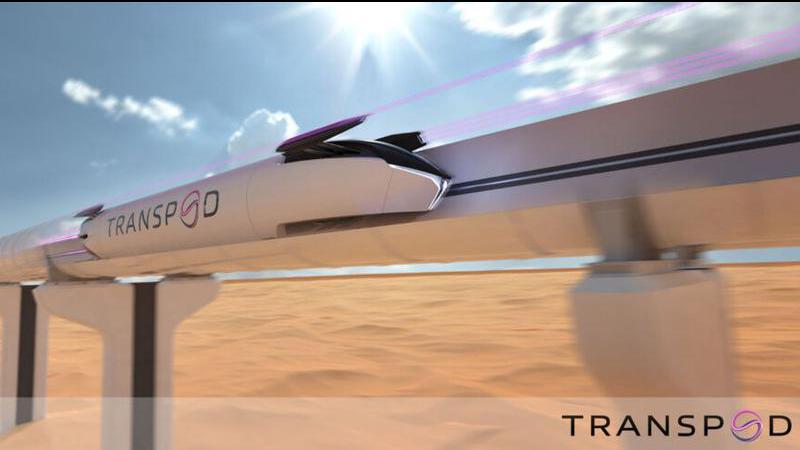
“FluxJet” unveiled: proposed Calgary-Edmonton line could travel 1,000 km/hr
Work on an ultra-high-speed ground transportation system proposed to link Alberta’s two largest cities is progressing.
TransPod had unveiled the new name and design of its hyperloop train, the FluxJet.
A scaled-down version of FluxJet was shown off during a live demonstration in Toronto earlier this month.
The company says in a media release, “technological leaps in contactless power transmission and a new field of physics called veillance flux, the FluxJet travels in a protected guideway at over 1,000 km/h.”


